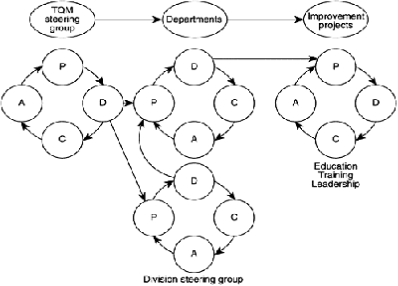Leadership And Quality Motivation
Introduction:
Quality motivation is all about people because it is people who make quality. Leadership is the beginning of the quality improvement process which starts with vision, mission, values, policy and strategy, systems etc. The belief is that when people are well motivated then they can overcome any difficulties they experience in solving their problems.
Total quality:
Total Quality is a holistic concept which requires quality motivation of all people in an organization towards a common goal. Whatever the structure and management process of the organization the necessary links must be built up between people
Quality motivation is all about people because it is people who make quality. We have a common saying that ‘an organization is as good as its people’. It is well-known that the majority of quality-related problems within our organizations are not within the control of the individual employee. As many as 80% of these problems are caused by the way the people are organized and managed.
Some examples of this bad management can be seen as follows: 
• When people are not given the right training to do the job and have to learn the job of others.
• When the job itself is not properly defined and those doing it have to ‘make it up’ as they go along.
• When paperwork is out of date or otherwise inaccurate.
• When systems do not reflect
The role of managers within the organization is to ensure that everything necessary is in place to allow people to make quality. Organizations are run by various systems and procedures in order to manage their activities smoothly and in an orderly fashion.
Fig: The CIP orchestra
Leadership:
- Leadership is the beginning of the quality improvement process which starts with vision, mission, values, policy and strategy, systems etc. and further continues with other principles and concepts of Total Quality Management.
- According to the European Model for Total Quality Management, leadership is the driving force behind policy and strategy, people management, resources and processes, leading ultimately to excellence in business results.
The European Model for Total Quality Management also suggests that customer satisfaction, people satisfaction and impact on society can be achieved through leadership. The model has used various criteria to demonstrate leadership including (EFQM, 1996):
• Visible involvement in leading Total Quality;
• A consistent Total Quality culture;
• Timely recognition and appreciation of the efforts and successes of individuals and teams;
• Support of Total Quality by provision of appropriate resources and assistance;
• Involvement with customers and suppliers;
• Active promotion of Total Quality outside the organizations.